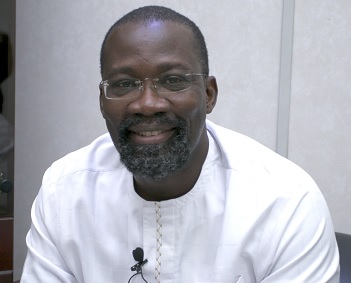
BOST clears air on financial performance
The Bulk Oil Storage and Transportation Company Limited (BOST) recorded profit-before-tax of GH¢9.84 million for 2020.
That was against the estimated GH¢30 million recorded for last year and the loss of GH¢158.47 million in 2019.
The Managing Director of BOST, Edwin Provencal, said the positive profit-before-tax obtained in 2020 and the estimated positive outturn for last year implied a massive turnaround of the operational fortunes of the company.
He, therefore, described the GH¢400 million loss reported in some circles as erroneous.
In an interview with the Daily Graphic, Mr Provencal showed the five-year revenue and profitability audited position of the company, which indicated that the strategic oil storage company recorded a GH¢632.65 million revenue in 2020, with a corresponding profit-before-tax of GH¢9.84 million.
He stressed that in the past two years, the income-earning assets of the company had improved from 18 to 91 per cent.
He said working to overturn the loss-making position of the company into profitability had been through enhanced performance, driven by extensive operational efficiency initiatives.
He said in 2019, the company recorded GH¢521.60 million in revenue and loss-before-tax of GH¢158.48 million.
In 2018, BOST recorded revenue of GH¢263.64 million, against loss-before-tax of GH¢287.75 million.
Similarly, there were losses-before-tax of GH¢112.19 million in 2017 and GH¢533.19 million in 2016, the data indicated.
Enhanced performance
Accentuating facts he had presented to the Daily Graphic earlier this year, the BOST managing director said the operational efficiency was driven by factors “including, but not limited to, massive repair works of our storage tanks, pipelines and marine assets, replacement of outmoded parts across the facilities of the company in the last two years, supported by improved marketing and customer service.”
External factors
Mr Provencal said in spite of the strong and profitable core business operations of the company, its profitability was impaired by some factors it did not have control over, turning the profit-before-tax into a net loss for the period.
They included unpaid tax obligations over a five-year period to date, the reduction in the value of the company’s shareholding in GOIL and foreign exchange differential on its dollar-denominated loans, resulting from the depreciation of the cedi.
“The report of the GH¢400 million loss made by BOST is not accurate. To measure the profitability and operational efficiency of a business, one must determine whether the underlying operations (core business) of the company are profitable,” Mr Provencal, who is an astute business strategist and management consultant, stressed.
Throwing more light on the factors affecting the company’s finances, he said BOST, as part of its drive towards operational excellence, undertook a revaluation of its assets in the 2020 financial year.
He said that become necessary because most of the assets of the company had been written down to near-zero levels, while still useful in the operations of the company.
“As required by the International Financial Reporting Standards (IFRS), when assets are revalued, the increase in their values is taxed, resulting in larger tax obligations,” Mr Provencal said.
The revaluation, which was a deliberate decision to enhance the reporting of the company, led to a deferred tax obligation of GH¢292.93 million, compared to the net loss of GH¢291 million, a difference of GH¢1.92 million, he explained.
The managing director said the increase in the value of the revalued assets also resulted in increased depreciation charges, which further reduced the profit for the year.
The other issue, he said, was the 20 per cent stake BOST had in GOIL.
He explained that in any financial year, any loss in the market value of the shares of GOIL was computed, and that reduced the income of BOST to arrive at its net profit or loss for the year.
“In the year 2019 to 2020, our investment in GOIL saw a reduction of GH¢15.67 million in its market value,” he said.
“Respectfully, this event is external to BOST operations and, therefore, to gauge the performance of BOST management and staff by this loss in investment will not be fair,” he asserted.
He insisted that profit before tax should be the focus, instead of all the uncontrollable factors which had been factored in to arrive at the net profit or loss for the year.
The recorded net losses for the years 2019 and 2020, per the income statement of the company, were, therefore, GH¢101.41 million and GH¢291 million, respectively, he added.
“BOST has been turned around; any comprehensive and objective analysis of the audited statements for the past five years will show a company on track to higher performance through enhanced efficiency and we look forward to capitalising on this modest improvement to make BOST an example of a world-class state-owned enterprise,” Mr Provencal stated.
